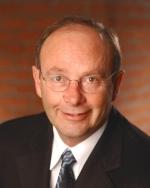Reflections On How The Human Resources Practices Can Be Empowered By The Requisite Organization
Speaker A Well, I first came across with David Alrick's work, I believe it was 1992 way and well before I learned anything about Requisite organization and Ulrich's work, there is no question in my mi...
Transcript of the presentation video
NOTE: This transcript of the video was created by AI to enable Google's crawlers to search the video content. It may be expected to be only 96% accurate.
Speaker A Well, I first came across with David Alrick's work, I believe it was 1992 way and well before I learned anything about Requisite organization and Ulrich's work, there is no question in my mind, is seminal to HR profession. And one of the things that I found absolutely fascinating when I did understand Requisite principles is how I could relate a lot of the work of Requisite into, particularly how David Elrich describes the four key roles of human resources and how understanding levels of work helped me to understand that not all work in HR is indeed strategic. And in fact, it shouldn't be strategic. All of it. There is a large component of work that he describes as HR needs to be an administrative expert. And yes, they do. Understanding that there is different work using those four descriptors that David Ulrich so accurately described, and marrying that with some of the principles of work at different levels really, truly helped me to better understand once again HR, how it can fit in and be a fully integrated, value adding function. I guess the kind of person that one would need, in my opinion, in a VPHR role operating at level four to be fundamentally integrate the HR business, integrate HR systems into business systems. One needs there's two components, in my view. It's not a question simply of capability. In other words, could an individual who's capable of level four work, who's in It, move into an HR role? What that does is it sells short, in my opinion, the skilled knowledge required to be an HR professional. My advice is to a CEO that was looking at you need the skilled knowledge. It is as important as the capability to do the work. How does one get the skilled knowledge? One gets the skilled knowledge in the field in doing the work, but also through education. So could somebody in it become a VPHR? Of course they could, but make sure they have the skilled knowledge, learn it, be involved in it. Let me talk a little bit about how I feel about, well, two things, the professional associations and HR conferences. Firstly, I was very much involved in both in the early stages of my career. Went to the education sessions and found it incredibly helpful. The issue I find is that, and it's understandable most of the material presented is directed at level one, level two, and tops level three. I stopped going when I hit level four. I didn't find it adding the right value. Completely understandable, most of the people are there, so why wouldn't they direct the material there? But there is a gaping hole in the education for HR professionals at level four. A gaping hole. What they need to be teaching is my view is that the HR as a system, what I found fascinating, I did find one when I was at level four. It was a conference board of Canada brought together executives from large corporations and I truly felt I was among Pierce, and we shared information back and forth. That was ten years ago. I don't know if they still do it, but I found that to be the only one that was truly adding value to me at that point in my career. The conferences I started to go were, frankly, outside of HR. I would go to conferences on finance, I would go to conferences on purchasing because I was a general manager, and it was learning then more about general management. One of the other conferences that I think is very important is a go conference. Go conference probably is the only one that I can think of that talks about requisite organization at a more senior level, directs HR, and is directed towards HR at a more senior level. One of the other areas within HR that I found very helpful is over the past several years, we've held go conferences. We've had two. And those go conferences do direct information at a more senior level that is relevant to senior HR professionals. Requisite organization is incredibly powerful for the HR profession, and it will inform your HR work in a way, at least from my perspective, that fundamentally changed the way I viewed HR. I would encourage you to encourage any HR profession, and I think it's a tragedy that requisite organization itself is not taught as much as I believe it should in business schools within HR professional associations, there is definitely a role. There's definitely an opportunity, I think, to insert requisite organization into some of these educational program grants.
Major organizations and consulting firms that provide Requisite Organization-based services





